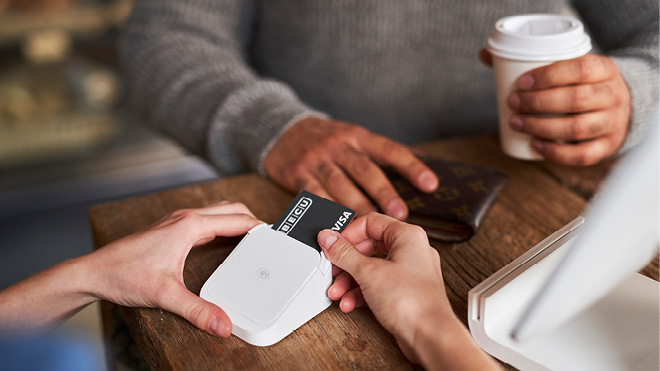
Banking Basics: Tips To Get Started
Different types of financial accounts and services provide different benefits. Understanding these tools and how to use them can help you manage your money and reach your financial goals.
Let's consider your current banking situation: Maybe you still have the accounts you opened years ago at the same credit union as your parents and haven't thought about them since. Or maybe you have extra cash to stash away and you're wondering if it's time to open a savings account.
No matter how you've been managing your money, knowing banking basics can help you make the most of your finances.
We'll go over some different types of accounts to help you understand your options and how to make financial decisions that work best for you.
Why Banking Matters
Financial institutions such as credit unions and banks provide security and convenience for managing your money.
Different products and services are designed for you to conduct transactions, save money, increase your savings with earned interest, build your credit and borrow money. Beyond financial accounts, some financial institutions may offer budgeting tools, financial guidance and resources.
Banking can also reduce costs of everyday financial services such as check cashing, money orders and prepaid debit card fees. NerdWallet estimates "unbanked" households spend $230 million a year in fees for these services.
While payment apps might seem like they provide the same services as a financial institution, they aren't typically protected by the FDIC or NCUA like a bank or credit union.
Barriers To Banking
As beneficial as the services offered by financial institutions may be, not everyone has equal access to banking. The Federal Reserve Report on Economic Well-Being found 6% of U.S. adults were unbanked in 2022 with low-income adults accounting for the largest share. Younger adults, Black and Hispanic adults, and adults with a disability also were unbanked at higher rates, according to the Fed.
People don't have accounts with a credit union or bank for a variety of reasons, including not being able to meet minimum balance requirements, not trusting financial institutions and feeling that fees are too high, according to a 2021 FDIC national survey (PDF).
Where To Do Your Banking
Financial institutions provide financial services for their customers or members. Each type of financial institution varies in terms of the services they provide, their ownership structure, the laws they must follow and other factors.
Credit unions and banks are the most common types of financial institutions for everyday spending and saving.
Credit Unions
A credit union is a not-for-profit institution, usually member-owned, with a commitment to the financial success of the community it serves.
Credit unions often have a field of membership based on where people work or live, or their membership in an association such as a labor union, professional group or church.
Banks
A bank is typically a for-profit, privately-owned institution. Individuals or shareholders may receive dividends depending on how much money is being deposited.
Common Types of Accounts
Different financial institutions offer a range of account types. We'll describe some of the most common accounts for transactions and savings. Check with your credit union or bank to learn about their products and services.
Checking Account
A checking account is one way to access your money for frequent transactions. You can add money via paychecks, transfers and direct deposit. You can withdraw money using a check, debit card or ATM.
Most checking accounts allow high transaction activity and often come with low or no interest.
To help protect against fraud, some financial institutions, like BECU, limit the amount of money you can withdraw or spend per day on a debit card transaction.
Interest-Bearing Checking Account
Just like the name suggests, an interest-bearing checking account works much like a traditional checking account, except it may earn more interest.
You may have to meet different requirements -- like a higher minimum deposit amount or minimum number of transactions per month. BECU, for example, offers an interest-bearing checking account that was earning 4.07% APY on the first $500, and 0.10% APY on balances over $500.** (at the time of publication). To qualify, members must open a Member Advantage checking and savings account, sign up for electronic statements and make at least one free electronic transaction per month.
The national average checking account interest rate was 0.07%, according to a March 18, 2024 FDIC report.
Savings Account
A savings account is an account to deposit, grow and safeguard your money. They are often linked to your checking account.
Most financial institutions pay a small interest rate for keeping money in a traditional savings account, which could earn you a little money each month. Some savings accounts have minimum balance requirements and a limited number of withdrawals.
Be sure to research the rules of your account to ensure you avoid penalties or fees.
The biggest difference between a checking and a savings account is that you cannot use a debit card or write checks from a savings account. You can, however, withdraw money at an ATM from a savings account.
High-Yield Savings Account
A high-yield savings account usually has a higher interest rate than traditional savings accounts and often requires a higher balance. Some financial institutions, like BECU, do not offer high-yield accounts, so consider whether having one outside your primary credit union or bank is a priority.
Certificate of Deposit
A certificate of deposit is another type of account that you can use to save money. With a CD, you commit your money for a fixed period, which is called a term. When the term is met, or the CD reaches its maturity date, you have access to your money, plus the interest you've earned.
CDs typically have a higher fixed interest rate in exchange for keeping your money in the account for the full term. If you need to access the funds before the CD's maturity date for any reason, you'll typically pay a penalty for early withdrawal. Check the financial institution's account disclosures (PDF) for details before you commit to a CD.
Money Market Account
A money market account is another type of deposit account. These accounts usually have higher interest rates than traditional savings accounts. Typically, you can make unlimited withdrawals by ATM, in person, by mail or by phone, but you'll usually be limited in the number of transactions you can make by check, debit card and electronic transfer.
What Is a Debit Card?
A debit card is a card that is attached to a checking account. The funds for purchases will come directly from your checking account when you swipe or tap your card. It's important to remember that if your checking account doesn't have sufficient funds and you use your debit card, your account will be overdrawn and you may face an additional fee.
What Is a Credit Card?
Credit cards allow you to access a line of credit from the bank that issued the card. Once you're approved, the bank authorizes a credit limit depending on factors such as your income and any outstanding debts.
When you use a credit card, you're borrowing money that you will have to repay. If you don't pay off the full balance each month, you'll usually have to pay interest and finance charges, unless you have a no-interest deal.
Common Banking Services
In addition to providing financial accounts, credit unions and banks provide a variety of services that are commonly used for personal banking.
Here are some banking services you might expect from your financial institution:
- Check deposits
- Check cashing
- Withdrawals
- Notary
- Wire transfers
- Cashiers checks
- Money orders
- Auto loans
- Mortgage
- Home equity loans
How To Access Banking Services
When picking a financial institution, it's important to consider how easily you'll be able to access your money and the types of products and services you need.
Online and Mobile Banking
With online and mobile banking, you can access your accounts from anywhere.
Some financial institutions operate online only. While these online-only banks often have competitive interest rates and low fees, you won't have the option for face-to-face service, and depositing cash can be a challenge.
Online banking may include a messaging feature — BECU's is called Messenger — so you can talk with a representative on your banking app or website.
In-Person Banking
Brick-and-mortar financial institutions provide another way to access your money via tellers and get personalized, face-to-face help with other products and services offered by the financial institution.
Branches can provide hands-on assistance with most of your basic transactions, including deposits, cash withdrawals, account transfers and balance inquiries. BECU also has neighborhood financial centers that can help you with loan applications, credit cards, financial guidance and more.
Additionally, credit unions often give members access to a network of in-person teller options through a shared branching relationship.
Telephone Banking
Telephone banking is a way to access your accounts and other banking services by calling your credit union or bank and following a menu of prompts.
Many financial institutions that provide telephone banking services also staff their phone lines so you can get live help from a representative.
Video Banking
At some financial institutions you can access your accounts and other banking services through video banking, combining aspects of in-person and online banking.
BECU, for example, provides video banking services for new and existing accounts, loans and mortgage questions.
Monitoring Your Money
Each month, your credit union or bank will send you a statement of each account that includes your deposits and withdrawals from that month. If your financial institution has online or mobile banking, you can get a real-time look at your accounts from your mobile device or computer.
Taking Your Next Banking Leap
As you consider your financial situation and goals, look for a financial institution that is aligned with your banking needs, wants and values.
Needs and wants for your credit union or bank may include:
- Access
- Customer service
- Competitive rates
- Digital experience
- Fraud protection and security
- Low fees
- Language initiatives
- Community involvement
Determine your priorities before you start your research and check your list often to see if your financial institution continues to meet your needs.
* Where examples are used, the products, rates and returns are not guaranteed and are for educational purposes only. The information and examples are not advice and may not reflect the rates, products, or services currently available from BECU. BECU does not offer or guarantee products or rates in this article.
The above article is intended to provide generalized financial information designed to educate a broad segment of the public; it does not give personalized financial, tax, investment, legal, or other business and professional advice. Before taking any action, you should always seek the assistance of a professional who knows your particular situation when making financial, legal, tax, investment, or any other business and professional decisions that affect you and/or your business
**Rates stated as annual percentage yield effective April 1, 2024, and are subject to change. Fees will reduce earnings.


